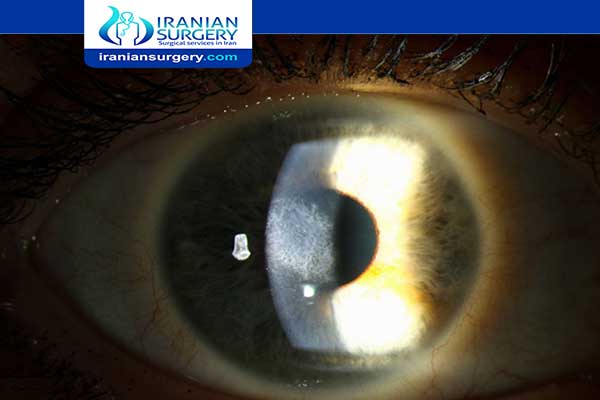Corneal haze after prk

What is Corneal Haze?
Corneal haze describes a cloudy or opaque appearance of the cornea. The cornea is the clear front window of the eye. It is the part of the eye that transmits and focuses light into the eye. The cornea is a fairly complex structure that has five layers. If this part of your eye becomes damaged through disease, infection, or injury, scarring can interfere with your vision by blocking or distorting light as it enters the eye.
The cornea is normally clear, so corneal haze can greatly impair your vision. Although the haze can occur in any part of the cornea, it is most often found in the thicker, middle layer of the cornea, called the stroma.
Symptoms of Corneal Haze
Corneal haze may cause vision to be blurry, unfocused or obscured. It can also cause halos to be visible around light, especially at night or in the dark. Sometimes, however, corneal haze does not cause any vision problems at all, although a doctor can usually detect it during an eye examination.
Causes of Corneal Haze
Corneal haze most often appears after trauma, infection, or surgery. It is usually caused by inflammatory cells and other debris that is activated inside the eye.1
Corneal haze also sometimes occurs during laser vision correction procedures. Although it can occur in LASIK, it is more often associated with procedures such as PRK or LASEK.
Read more about : Lasik eye surgery
Treatment of Corneal Haze
When corneal haze appears after surgery or other wounds, it will usually disappear as the eye heals. In more severe cases, a doctor may prescribe eye drops or other medication. The haze that develops following refractive surgery normally resolves after a few days, but sometimes takes up to six months.
Corneal haze is usually successfully treated in post-laser surgery patients with medicated eye drops. The symptoms of seeing halos and glare usually resolve before the haze fully disappears.
Prevention of Corneal Haze
If your eyes are not healthy or if your overall health is suffering, you are more likely to develop corneal haze after having refractive surgery. However, haze is not common in LASIK patients, even when the amount of correction is high. It may be preferable to choose LASIK instead of PRK, LASEK, or Epi-Lasik if you have a high prescription and there is concern for corneal haze.5
Also, using certain eye drops during surgery reduces the probability of developing corneal haze. Ask your eye surgeon for recommendations.4
Researchers have found that patients who take 500 mg of vitamin C twice a day for a week before PRK, LASEK, or Epi-Lasik and at least two weeks after surgery may be less likely to develop corneal haze.
The symptoms of corneal haze are not always associated with refractive surgery. Corneal haze can be caused by serious problems that may require immediate attention. If you develop symptoms of corneal haze, it is best to see an eye doctor immediately.
Source:


1 Comment
I had this complication after PRK surgery on 1 eye (second PRK – fix). Additionally, I had impaired vision for close distance and eyelid prolapse (as explained, due to prolonged steroid use).
Initially, the haze was intolerable, and caused very much discomfort, headaches, dizziness / vertigo and much more..
It appeared approximately 3w-1m after the surgery, kept steady until ~8m after surgery, then I felt (and saw) some improvement.
I had twice severe eye inflammation, and was treated with Diclofenac the first time and steroids only (FML) the second time.
Approximately 1y after the surgery, I felt like the problem simply went away.
Now, approximately a year and few month after surgery, I see well on the operated eye, both long distance and short.
Anyone having this problem – I would advise to be patient, don’t panic, it’ll pass – IT JUST TAKES TIME.
P.S. If you’re close to 40 (or more) – I wouldn’t advise any eye correction surgery, because side effects are much more likely to occur (compared to younger ages) – your body healing properties AREN’T THE SAME anymore!